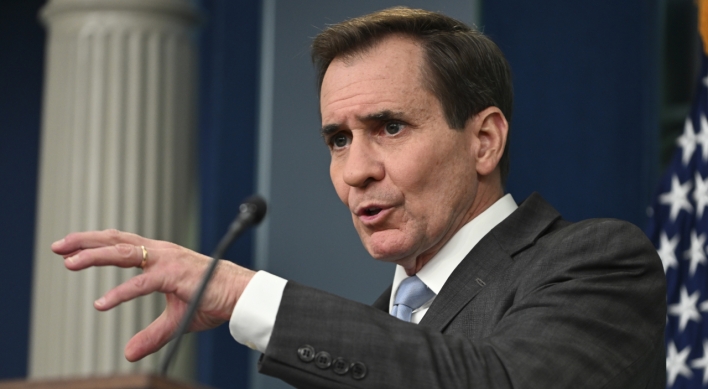Defense minister nominee draws fresh allegations over asset disclosure
By 윤민식Published : March 19, 2013 - 17:14
Defense Minister-designate Kim Byung-kwan came under further pressure to withdraw Tuesday after he was found to have shares in controversial overseas resource developer KMDC and to have failed to report them in asset disclosure and confirmation hearings.
Following the latest revelation of his irregularities, the Democratic United Party once again called on the retired general to withdraw his nomination.
KMDC is a resource developer founded in 2010. It was alleged in 2011 that an influential figure of the Lee Myung-bak administration aided the company in winning the rights to develop four off-shore mining projects from Myanmar in 2011.
Following the latest revelation of his irregularities, the Democratic United Party once again called on the retired general to withdraw his nomination.
KMDC is a resource developer founded in 2010. It was alleged in 2011 that an influential figure of the Lee Myung-bak administration aided the company in winning the rights to develop four off-shore mining projects from Myanmar in 2011.

On Tuesday, Kim admitted that he bought 750 shares in the company for 40,000 won ($36) per share in May 2011.
He also said that the shares now had “almost no value,” and that he purchased the shares of the unlisted company through an acquaintance.
During his parliamentary hearing, Kim did not report the shares and said that he had no involvement in stock trading, which now he claims was a mistake.
“Documents (regarding the KMDC shares) were omitted as so much information was being prepared in a short period of time,” Kim was quoted as saying.
The DUP has opposed Kim’s appointment from the beginning, calling him “the department store of corruption” and “unfit” almost immediately after his nomination on Feb. 13. Although Kim’s confirmation hearing was held despite the DUP’s initial refusal to do so, a confirmation report was not adopted by the parties.
Allegations of wrongdoing range from the usual false change of address and evading taxes incurred in transferring assets to his children to lobbying for military contracts.
After retiring from the Army, Kim worked for an arms trading firm from 2010 to 2012, during which time he is suspected of having used his connections to facilitate the selection of German parts for the Korean military’s K-2 tank. The fact that the company’s CEO had a record of illegal dealings with regards to military contracts has added to the suspicions of wrongdoing.
While he was serving as the commander of the 2nd Infantry Division, he was cautioned for reducing the penalty given to an officer for taking bribes, and had kept official funds in his personal bank account.
By Choi He-suck
(cheesuk@heraldcorp.com)





![[Music in drama] Rekindle a love that slipped through your fingers](http://res.heraldm.com/phpwas/restmb_idxmake.php?idx=644&simg=/content/image/2024/05/01/20240501050484_0.jpg&u=20240501151646)




![[New faces of Assembly] Architect behind ‘audacious initiative’ believes in denuclearized North Korea](http://res.heraldm.com/phpwas/restmb_idxmake.php?idx=644&simg=/content/image/2024/05/01/20240501050627_0.jpg&u=20240502093000)







![[Today’s K-pop] Stray Kids go gold in US with ‘Maniac’](http://res.heraldm.com/phpwas/restmb_idxmake.php?idx=642&simg=/content/image/2024/05/02/20240502050771_0.jpg&u=)